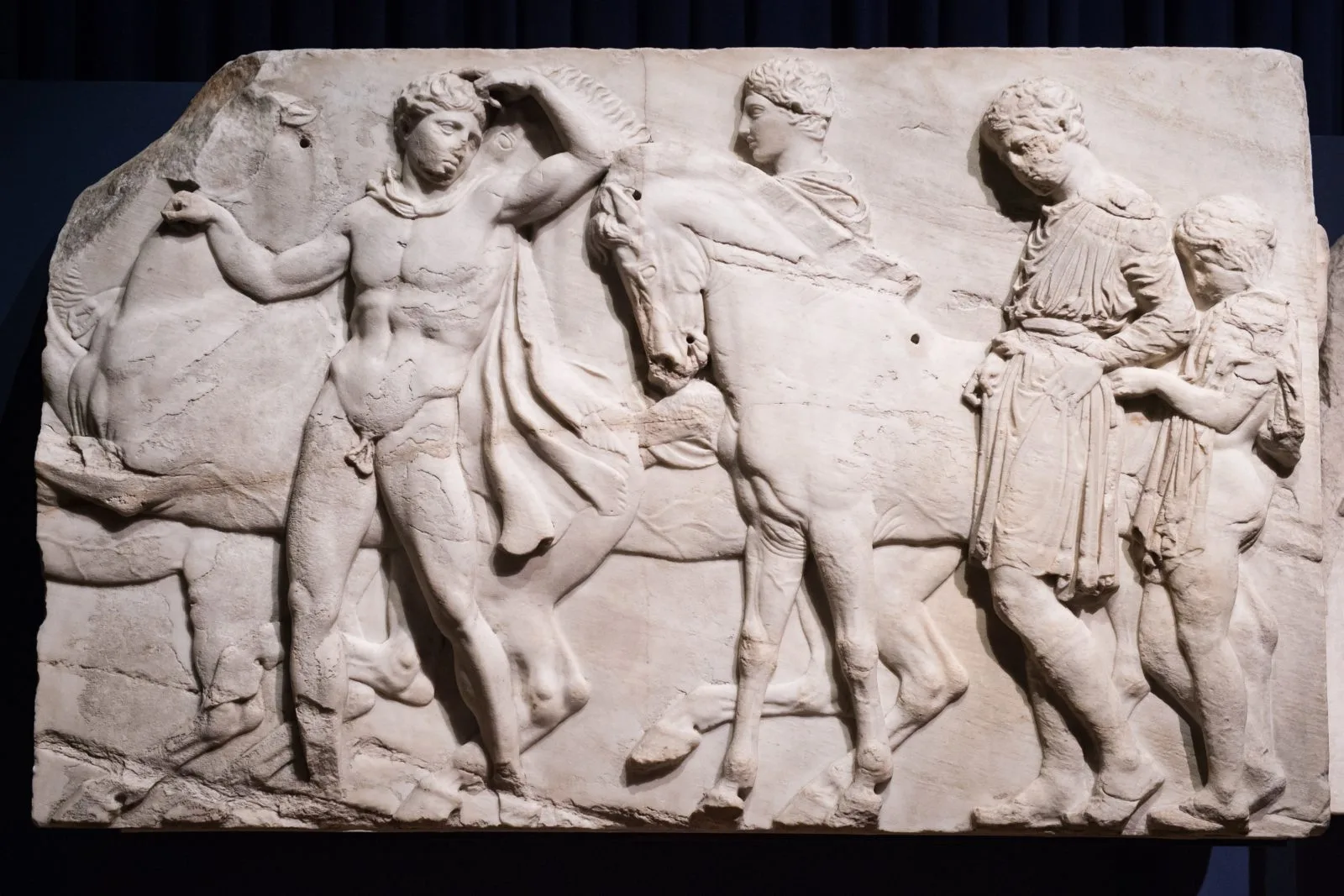LGBT In Greek History - A Comprehensive Overview
Greece is renowned for its rich cultural and historical legacy, and its influence can still be seen in modern-day society. Among its many contributions, Greece has made significant strides in the acceptance and recognition of the LGBTQ+ community. This article will delve into the role of LGBT in Greek historyand explore the attitudes towards homosexuality in ancient Greece.
The Role Of LGBT Individuals In Greek Society
The ancient Greeks were known for their progressive attitudes towards sexuality and gender roles. In Greek society, it was not uncommon for men to have relationships with other men, and homosexuality was not seen as taboo. In fact, many Greek philosophers, including Plato and Aristotle, discussed and celebrated same-sex love in their works.
In addition to relationships between men, there were also examples of women who had relationships with other women. These women were known as "tribades" and were often portrayed in art and literature. It is important to note, however, that while same-sex relationships were accepted, they were not always viewed as equal to heterosexual relationships.
LGBT Individuals In Greek Mythology
Greek mythology is filled with stories of gods and goddesses who engaged in same-sex relationships. Perhaps the most famous example is the relationship between Zeus and Ganymede. According to legend, Zeus was so enamored with Ganymede's beauty that he transformed into an eagle and abducted him to Mount Olympus, where he became the cup-bearer of the gods.
Another famous example is the story of Achilles and Patroclus. While their relationship is not explicitly described as romantic in Homer's "Iliad," it is clear that they had a deep emotional connection. This relationship has been interpreted as a romantic one by many scholars and has been the subject of numerous works of art and literature.
Attitudes Towards Homosexuality In Ancient Greece
While homosexuality was not seen as taboo in ancient Greece, it was not universally accepted. For example, in Athens, it was considered shameful for an adult male to take the passive role in a sexual relationship with another man. This was seen as a sign of weakness and effeminacy, traits that were not highly valued in Greek society.
Despite these attitudes, same-sex relationships were still a common occurrence. In fact, there were even laws in place to regulate these relationships. For example, in Athens, there were laws that prohibited older men from pursuing relationships with young boys. There were also laws that prohibited men from having sexual relationships with their male slaves.
The Legacy Of LGBT In Greek History
The influence of ancient Greece on Western culture is undeniable, and this includes the impact that LGBT individuals have had on history. Despite the fact that same-sex relationships were not always seen as equal to heterosexual relationships, the ancient Greeks were known for their progressive attitudes towards sexuality and gender roles. This legacy has continued to inspire people throughout history, including during the LGBTQ+ rights movements of the 20th century. You can learn about LGBT in every corner of the worldin this article from StationZilla.
LGBT In Modern Greek Society
While the modern Greek society is not as progressive as ancient Greece in terms of LGBT rights, there have been significant improvements in recent years. In 2015, Greece passed a law allowing same-sex couples to enter into civil unions, which provided them with legal rights and protections. However, same-sex marriage is still not legal in Greece.
The LGBT community in Greece continues to face discrimination and harassment, particularly in more conservative areas. Despite these challenges, there are many active organizations and groups working to advocate for LGBT rights and promote acceptance and inclusivity.
LGBT Representation In Greek Art
Greek art has long been celebrated for its beauty and its depictions of human form. LGBT individuals have been represented in Greek art throughout history, often as symbols of love and beauty. One example of this is the statue of Antinous, who was a favorite of the Roman Emperor Hadrian. Antinous was known for his beauty and was often depicted in art, including a famous statue that portrays him as a heroic figure.
Another famous example is the story of the poet Sappho, who lived on the island of Lesbos in the 6th century BC. Sappho wrote poetry about love and desire, often expressing her feelings for other women. Her work has been celebrated for its beauty and has inspired countless artists and writers throughout history.
The Importance Of LGBT Representation In History
The representation of LGBT individuals in history is important for many reasons. It provides visibility and recognition for a group of people who have been historically marginalized and overlooked. It also helps to break down stereotypes and challenge assumptions about sexuality and gender roles.
Additionally, LGBT representation in history can serve as a source of inspiration and hope for people today. By highlighting the contributions of LGBT individuals throughout history, we can help to promote a more inclusive and accepting society.
LGBT Tourism In Greece
Greece has become a popular destination for LGBT travelers in recent years. The country's natural beauty, rich cultural history, and progressive attitudes towards homosexuality make it an ideal place for LGBT individuals and couples to explore and experience.
There are many LGBT-friendly destinations in Greece, including the island of Mykonos, which has become known as a party destination for the LGBT community. The island has a vibrant nightlife scene, with many bars and clubs that cater specifically to LGBT travelers.
Other popular destinations for LGBT travelers include Athens, Thessaloniki, and the island of Lesbos, which has a long history of LGBT activism and is home to the International Eressos Women's Festival.
In addition to its many LGBT-friendly destinations, Greece also hosts several events and festivals that celebrate diversity and inclusivity. One such event is the Athens Pride, which is held annually in the Greek capital and attracts thousands of participants from around the world.
LGBT Rights In Greece
While Greece has made significant progress in terms of LGBT rights, there is still work to be done to ensure equality and protection for all individuals. Discrimination and harassment based on sexual orientation and gender identity are still prevalent in some areas of the country.
In 2018, Greece passed a law allowing transgender individuals to legally change their gender without requiring medical intervention or approval. However, same-sex marriage is still not legal in Greece, and there are no laws protecting LGBT individuals from discrimination in the workplace.
People Also Ask
Were Ancient Greeks LGBTQ?
The ancient Greeks had a complex understanding of sexuality and did not have the same categories of sexual orientation as we do today. However, same-sex relationships were common and accepted in ancient Greece, particularly between adult men and adolescent boys. These relationships were often seen as a way of teaching young men about sexuality, as well as fostering emotional bonds and mentorship.
How Is Homosexuality In Rome Compared To Greece?
Homosexualitywas also present in ancient Rome, but the attitudes towards it were generally more negative than in Greece. While same-sex relationships were not illegal, they were often seen as shameful and stigmatized. However, there were some notable exceptions, such as the Emperor Hadrian's relationship with the youth Antinous, which was celebrated in art and literature.
What Does Eromenos Mean In Greek?
In ancient Greece, eromenos referred to the younger partner in a pederastic relationship. This term was used to describe the adolescent boy who was the object of affection and mentorship by an adult man, known as the erastes. The eromenos was expected to reciprocate the love and admiration of the erastes, but the relationship was not seen as equal, as the erastes held a position of authority and responsibility over the eromenos.
Conclusion
Greece's rich cultural history and progressive attitudes towards homosexuality make it an ideal destination for LGBT travelers. The country's many LGBT-friendly destinations and events provide opportunities for people to explore, connect, and celebrate diversity and inclusivity.
While there is still work to be done to ensure equality and protection for all individuals, the progress that Greece has made in terms of LGBT rights is a testament to the power of activism and advocacy. By continuing to fight for equality and acceptance, we can build a more inclusive and welcoming society for all.


